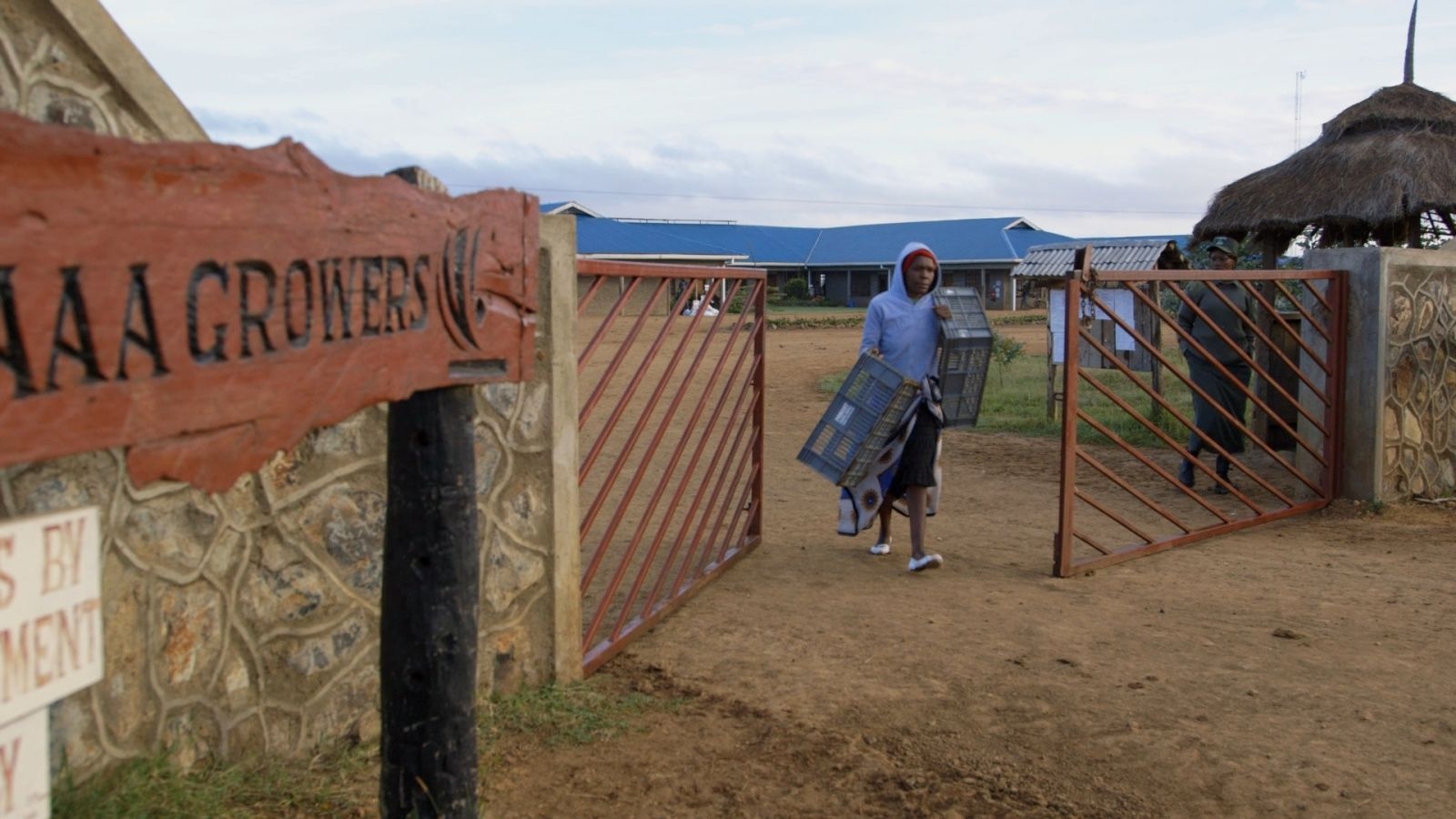Franco Sacchi is a documentary filmmaker born in Zambia and based in Boston, Mass. This is Sacchi’s first blog in a series for African Angle, in which he documents emerging entrepreneurs in Africa. For parts 2 and 3 of this series, click on the associated links.
By Franco Sacchi
For the past two years, I traveled to Africa on behalf of The Legatum Center for Development and Entrepreneurship at MIT to produce a series of short documentaries about entrepreneurs in emerging economies. As a filmmaker, my goal was to capture compelling stories that can help us understand, better than any hard data, what motivates an entrepreneur to work and succeed in Africa. On my most recent assignment, I went to Nairobi where I covered three very distinct cases. As I share my experience, I would like to reflect also on the common threads that link these stories.
AAA Growers
My first stop in Nairobi was at AAA Growers headquarters where I met with Ariff Shamji, a fourth generation Indian-Kenyan. Ariff and his wife Farah had the opportunity to travel abroad to complete their university studies in prestigious American universities, but upon graduation they did not hesitate to return to Kenya. The traditional path for someone like Ariff would have been to join his family construction business. Instead, the young Ariff—fresh out of college—chose the agricultural sector. With no experience whatsoever and against his family’s advice, Ariff went into farming. After an initial trial project with tomatoes, Ariff realized that if he was to succeed he would have to scale up right away.
With an impeccably tailored pitch, he obtained a $600,000 loan from IFC, a development bank. In 2000, AAA Growers was incorporated and his adventure began. The first few years were very challenging due to serious problems with land rotation and lack of sufficient refrigeration for their products. However, for Ariff and his wife Farah, in spite of all, the initial hurdles had a key intuition. The only way to be profitable in the long term and remain competitive was to add value at source. The key issue was not so much farming but mastering the manufacturing and the logistics. Early on, they started focusing on packaging their horticultural products on the farm and on being the exporter.
“A lot of people in the industry were looking at what we were doing even though we were small. Our model attracted major retailers in the U.K. If these retailers are willing to buy from me, surely I can make this work,” recalls Ariff. In just a few years, AAA Growers was able to build three more farms and employ over 4,000 people.

The AAA Growers Pack House at Simba
The atmosphere at the headquarters during my visit was calm but intense. A dozen accountants worked diligently on the biweekly payrolls of thousands of farmers whose lives depend on timely payments. The sales managers quietly worked, dealing with requests from numerous clients in Europe and Asia. Ariff, constantly moved from one office to another, checking in and out of meetings, but told me that after many years he still felt more at ease on the farm. “Decisions are made in the field not in front of a spreadsheet,” he said.

Arif Shamji (center) inspects the AAA harvest
It was time to visit AAA’s flagship farm, Simba—a four hour drive north of Nairobi. Simba is a 400 hectares farm dedicated not only to horticulture but also to flowers with a particular emphasis on high quality roses for the global markets. For the remaining two days, Ariff would walk me through every aspect of the farm’s operations. He seemed involved with each detail, from a refrigerator’s door that didn’t slide properly to the plans for a new irrigation system, without ever losing perspective on the big picture. The reliance on technology to run every aspect of the logistics seemed paramount. AAA is able to deliver its horticultural products from the fields of rural Kenya to any supermarket in the U.K. in 48 hours, shelf ready.

Technology aids logistics at the AAA packhouse
This level of sophistication is also bringing better paying jobs to a remote rural area like Nyahururu. The farm manager pointed out that there has been a noticeable improvement in the quality of the surrounding forest after the farm started its operations. With more reliable income available to the nearby communities, illegal foraging and wood burning is diminishing. But Ariff is not an idealist and he is not afraid to say that his true motivation in life is success. He is also quick to point out that making money is only a by-product of success.
On the long drive back to Nairobi, he talked passionately about Africa. He did not deny the difficulties of working in Kenya but he felt genuinely optimistic about the future. He left me with these words: “I think that the most important lesson I would pass down to my children is if you can avoid leaving Africa, avoid it. The opportunities in Africa are so simple and still incredibly rewarding.”
For more of Franco Sacchi, check out his TED talk on the Nigerian film industry. And don’t forget to check out further installments of his series on African entrepreneurship in next week’s installment of African Angle.
*****
*****
Franco Sacchi is the director of the award winning documentary “This is Nollywood” and co-founder of the Nollywood Workshops. For the past ten years his work had a specific focus on Africa and issues related to economic development.

